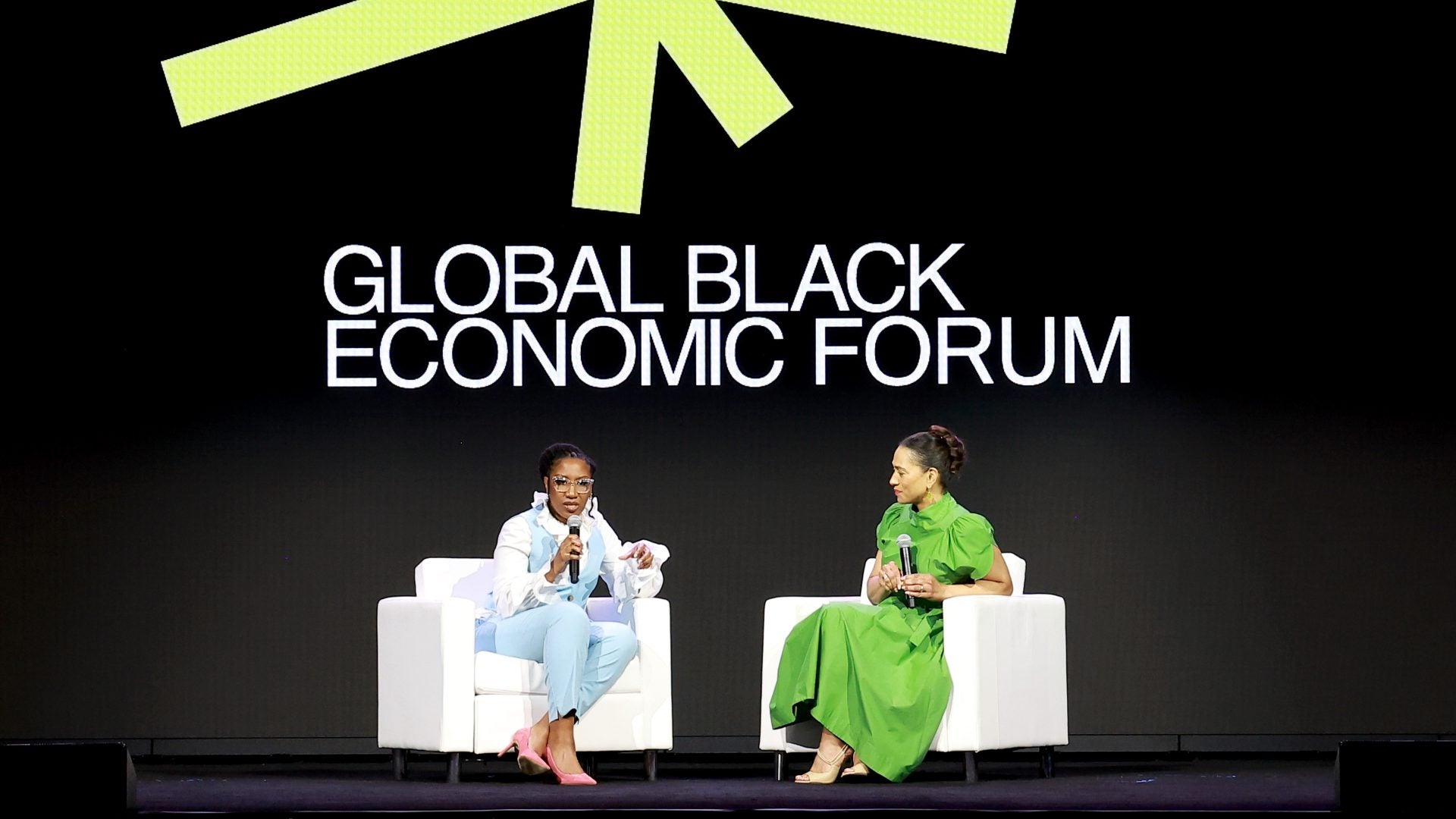
During ESSENCE Fest 2024 at the Global Black Economic Forum, Jennifer Jones Austin, CEO of the Federation of Protestant Welfare Agencies (FPWA), and Ashleigh Gardere, Executive Vice President of PolicyLink, took the stage for an enlightening discussion on how reframing the narrative can challenge structural inequality, empowering Black Americans to go from simply getting by to thriving.
Jones Austin kicked off the conversation with an opening salvo asking “why Black Americans, despite our best efforts to get ahead, to do the best that we can for ourselves and for our families, why we continue to struggle? What are the structural challenges? What are the systemic challenges that actually keep us from getting ahead, and what we need to be doing about it.”
At PolicyLink, Gardere said she and her colleagues are committed to doing the work of redesigning this nation so that it works for everyone. Despite following the rules and doing the smart things, the promise of the American Dream has not been fulfilled for many Black people in this country, and this is by design, Gardere explained. “The laws of this nation were built for white male property owners…our government systems, our rules towards the thriving of that one population.”
This flawed architecture is contributing to the struggle that many others are currently enduring.
PolicyLink is working to change the core values by articulating ideas for a re-designing of the American democratic structure and economy.
Echoing this sentiment, Jones Austin chimed in, adding how “we live in a society that focuses on basic needs and not economic security, and the greatest indication of this is when we talk about wages and not about wealth. It’s almost as though wealth is a bad word.” There was an important distinction that Jones Austin drew around wealth not as an indicator of high income, for example the Jeff Bezos’ of the world. Under this lens, the conversation should focus on low wealth as opposed to low income. “If your car breaks down, you don’t have to decide whether you’re not going to pay your rent. If you want to save for your child’s future you can do that…wealth is what produces economic security, and if you have that you can get ahead and actually stay ahead.”
When it comes to Black women, this is an especially dire situation. A Black woman strives for and attains a higher education because this is the roadmap for creating a better future for herself and her legacy. But systemic inequities have prevented the building and transfer of wealth to the next generation, so she is forced to sign on the dotted line to take out a student loan to finance her degree. Afterward, because of the equal pay gap, she is making approximately 63 cents on the dollar compared to her white male counterparts.
“She makes less money, she’s got debt, she’s got to repay. She can’t save because she’s making less money, and she’s got to pay off her student loans. She can’t save for her retirement, so now she’s going to have less money when she gets up in her years. She can’t save to put her child through college or children, so they’re going to have to take out more debt,” said Gardere. Ultimately, “She can’t save for inconvenient, unexpected circumstances.”
The solutions starts with reframing the narrative and both Gardere and Jones Austin agree it begins with establishing a true cost of living, i.e., in America, what does it actually cost to be economically secure, what does it mean to meet your basic needs and also have money left over that can be allocated toward retirement savings, childcare, and even elder care if needed. Jones Austin encouraged everyone to visit www.nationaltruecostofliving.org, and join the “coalition that is going to move this nation to reset the foundation to center us on economic security and not just deprivation.”